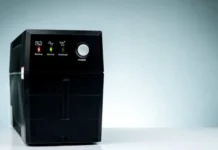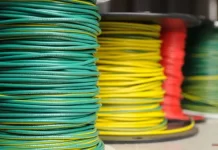In today’s world, industrial generators play a vital role in helping to power homes, businesses, and industries. Without these generators, basic needs and essential commodities would not be produced.
It is important to understand the different types of generators and how each one works. The ability to understand the basic components of a generator will enable you to choose one that will perfectly fit your needs.
Below, we have outlined a quick guide on types of generators.
Diesel Generators
Diesel generators are common in industrial settings and are available in many shapes and sizes. They provide consistent and reliable power. They also generally cost less to operate than other generator types.
Diesel generators are known for their superior efficiency and low levels of noise and exhaust emissions. They also provide long-term and handling stability. This makes them a popular choice for both stationary and mobile power requirements.
Industrial applications such as manufacturing require continuous and uninterrupted power. This can be supplied by a diesel generator more reliably than other generator types.
Natural Gas Generators
Natural gas generators, in particular, provide a reliable, cost-effective form of electricity. They are powered by natural gases, such as:
- propane
- methane
- ethane
These gases are stored in a tank until used. This ensures that the generator runs steadily. Natural gas generators are simple, yet efficient. They can be used in many industrial applications.
Natural gas generators tend to be quieter, require less maintenance, and have lower emissions than other fuel-based generators. They are also often cheaper to fuel, since natural gas prices are usually lower than diesel, for instance.
Bi-Fuel Generators
Bi-fuel generators are a specific type of industrial generator that can run on either gasoline or diesel. These generators offer multiple benefits to the user, such as:
- reduced fuel costs
- lower emissions
- improved reliability
- flexibility to switch fuel sources
All of which help prevent downtime. They are ideal for companies that need to ensure access to reliable power sources in emergencies. Operating on multiple fuel sources also lets users take advantage of fuel prices in different locations, allowing them to remain competitive.
Propane Generators
Propane generators are very efficient. This is because propane is a highly combustible fuel that produces fewer emissions than other typical fuels such as gasoline and diesel. Propane generators are also ideal because they are quieter than most gasoline-powered models and their fuel source is easy to acquire.
Additionally, propane generators have great durability and longer running times compared to some other generators. Therefore, they are perfect for use in industrial settings where reliable, long-term power is needed.
But whatever your generator is, make sure you always have a resource for solutions to common generator problems. That way, you’ll also be able to avoid downtime.
Explore the Types of Industrial Generators
Industrial generators can provide an increased level of reliability and flexibility in many industrial applications. With so many types of generators, determining the best one for a given application can be a challenge.
For those searching for the right industrial generator, fully assessing the needs of the application is essential to finding the best fit. Learn more today about the different types of industrial generators and their uses!
Should you wish to read more articles aside from these tips for buying a generator, visit our main blog.

































